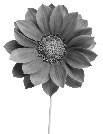Fighting back against allergy season
How to arm yourself better to breathe easier.
Spring allergy seasons continue to start earlier each year (it was February in 2012), and pollen counts continue to go up. It's not a fluke; scientists say the effects of climate change are making allergy seasons worse. Research presented at the American College of Allergy, Asthma and Immunology in November 2012 suggests that by 2040, pollen counts are expected to double. "I do think that the allergy seasons seem to be longer. When winter is shorter and less severe, it means there will be pollens and molds present for a longer period of time," says Dr. Stacey Gray, an allergy expert at the Harvard-affiliated Massachusetts Eye and Ear Infirmary.
The offenders
|
Photos: Thinkstock Spring is |
Grass, weeds, and trees release tiny pollens into the air each spring, summer and fall. Inhaling these pollens can trigger a reaction of the immune system. It's known as hay fever. Symptoms vary, but commonly include a runny nose, sneezing, itching, and burning or watery eyes. If you have asthma or chronic obstructive lung disease, pollen can increase your risk for flareups. Other floating pollutants in the air can cause allergic reactions as well, such as mold spores and dust mite droppings, although mites aren't a seasonal problem, and mold can be a year-round problem in warm climates.
You can find out what you are allergic to by having allergy testing. This is done in a doctor's office, using either a blood test or a skin test. The skin test involves pricking the surface of the skin and exposing it to allergens. Redness and swelling at a test spot on the skin indicates an allergic reaction.
The medical fix
Once you know which allergen you're dealing with, you can develop a treatment strategy with your doctor. This usually involves medications. Which drugs your doctor prescribes depends on a number of factors, such as the symptoms you're having, and the medications you're taking for other conditions because of possible interactions.
 Summer is a problem for people with grass allergies. Summer is a problem for people with grass allergies. |
Antihistamines counteract a protein called histamine, which is released by tissue cells deep inside the skin during an allergic reaction. Over the counter (OTC) examples are chlorpheniramine (Chlor-Trimeton) and diphenhydramine (Benadryl). "Antihistamines like Benadryl are an old stand-by, but there are several newer non-prescription medications that work well without causing drowsiness, which is one of the main side effects of Benadryl," says Dr. Gray. These include fexofenadine (Allegra), loratidine (Claritin), and cetirizine (Zyrtec). Cetirizine can sometimes still cause some drowsiness for some patients.By prescription, there are now topical nasal antihistamine sprays—azelastine (Astelin) and olopatadine (Patanase)—which can help with sneezing and runny nose. There are also topical antihistamine eyedrops that can be used for the symptoms of watery eyes, such as ketotifen (Zaditor), available OTC, and olopatadine (Patanol), available by prescription.
Corticosteroid nasal sprays are steroids similar to hormones your adrenal glands produce. They reduce inflammation and help reduce nasal congestion, runny nose and nasal itching. These are available by prescription, such as mometasone furoate (Nasonex) and fluticasone propionate (Flonase), and can be used long term.
Non-steroidal nasal sprays that contain cromolyn sodium (NasalCrom) are available OTC. These target the root cause of symptoms by keeping allergens from reaching cells that release histamine. They can be used long term. However, Dr. Gray says the sprays are often not quite as effective as nasal steroid sprays.
|
Fall is a problem for people with weed allergies. |
Decongestants help by reducing swelling in the nasal passages, but they can cause problems for people with high blood pressure or heart problems, and in general should not be used long term, points out Dr. Gray. Decongestants are also available in sprays, but they should not be used for more than a few days, since they can actually make congestion worse when used long-term. Decongestants are available without a prescription, such as pseudoephedrine (Sudafed), but are kept behind the counter because some people use them to make illegal methamphetamines.
Immunotherapy is a series of allergy shots that help build up immunity over a period of 3-5 years. This is usually a last resort for people who don't respond to medications.
Since allergy seasons appear to be worsening, Dr. Gray suggests starting medications early, before the allergy season starts. "For instance, start using a nasal steroid spray a few weeks before the spring allergies begin," says Dr. Gray.
Other strategies
Fighting allergies with medicine alone may not be enough, says Dr. Gray. She recommends minimizing allergens in the house and in the work environment. "Make sure the air conditioning and heating filters and vents are all clean."
During peak pollen season, close your windows and consider wearing a mask for outdoor yard duties. Better yet, avoid going outside when pollen levels are highest. Dr. Gray also recommends using nasal saline irrigations. "They're especially helpful to clean the nose after an exposure to an allergen like working in the yard."
Remember, too, that certain irritants in the environment can make allergy symptoms worse, like exposure to cigarette smoke and pollution. Dr. Gray suggests avoiding such exposure if possible.
Disclaimer:
As a service to our readers, Harvard Health Publishing provides access to our library of archived content. Please note the date of last review or update on all articles.
No content on this site, regardless of date, should ever be used as a substitute for direct medical advice from your doctor or other qualified clinician.

















